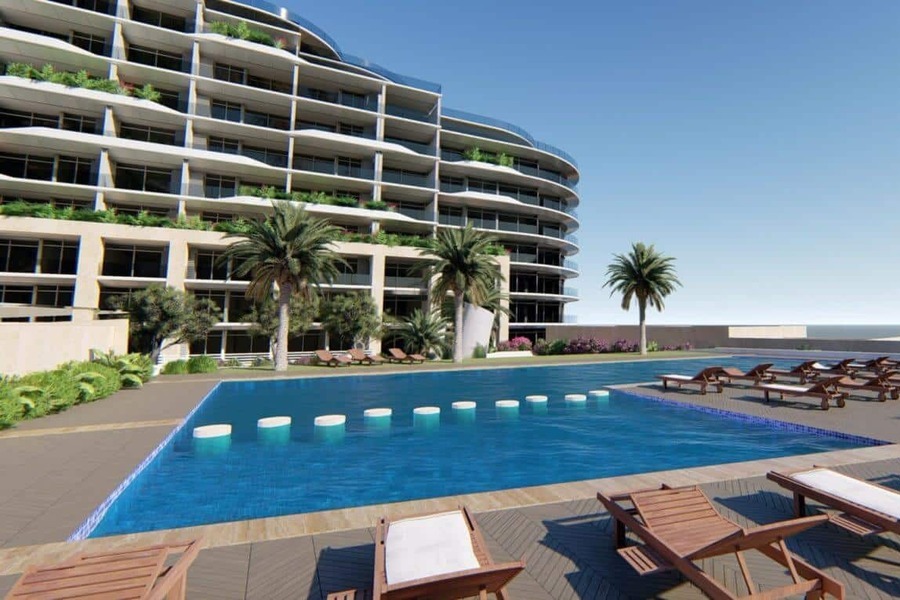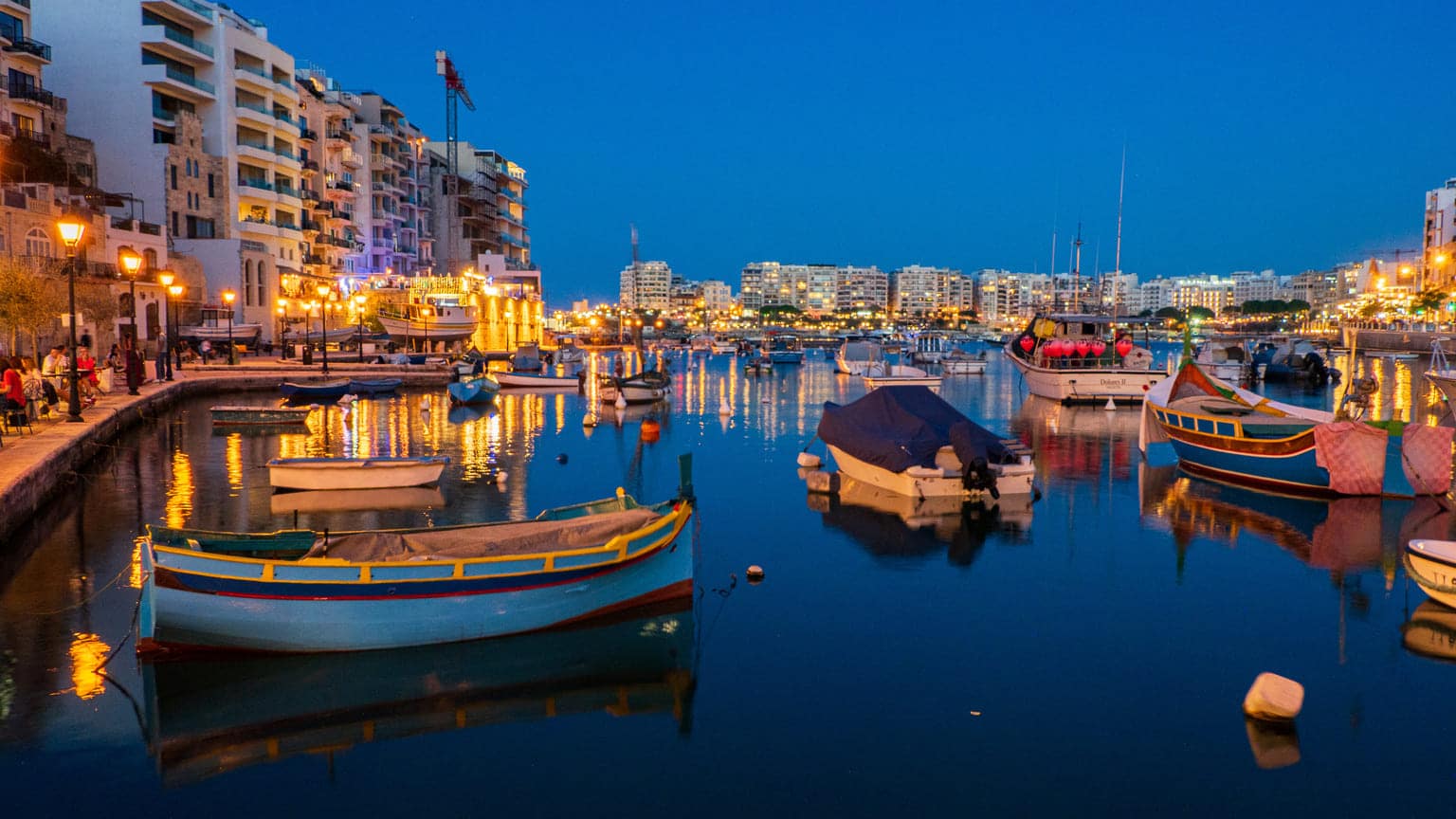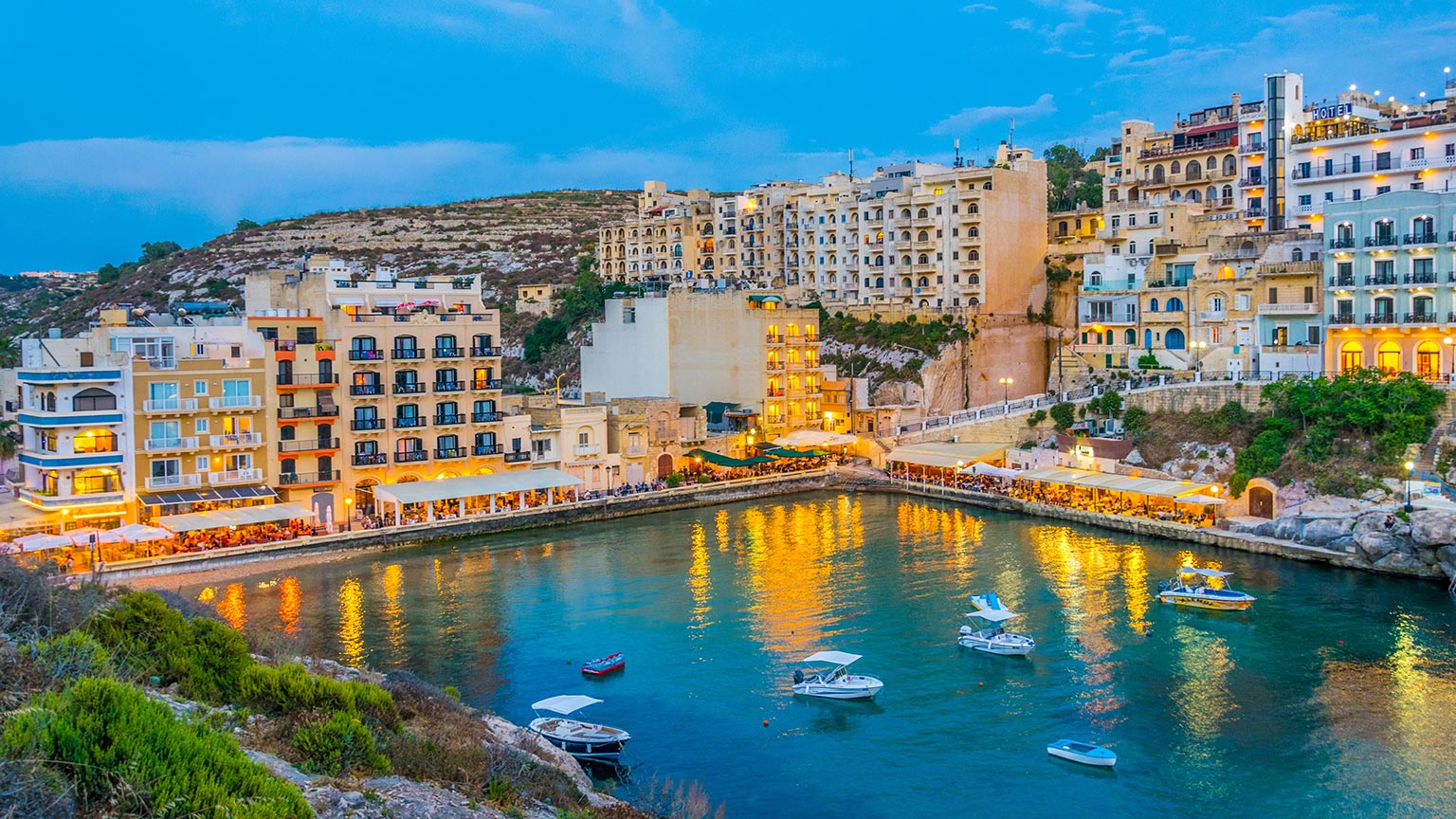Investors buy properties in Malta to move to the country, acquire a rapidly growing asset, or obtain official status, such as permanent residence by investment.
Foreigners who buy and sell property in Malta pay the same taxes as native Maltese. Tax rates do not depend on whether the investor is a tax resident of the country.
Taxes and fees when buying a property in Malta
When buying a property in Malta, you must pay stamp duty, purchase tax, land tax, and notary and agency fees. An architect's conclusion and, in some cases, permission to purchase real estate by foreigners are also required. As a rule, the tax amount is 8 to 15% of the property value.
The stamp duty is 5% of the purchase and sale contract sum. In some cases, exemptions apply.
Stamp duty is reduced or waived if:
- the property is more than 30 years old, confirmed by the architect's report, or the property is in the area of historical urban development. In this case, no fee is charged on the first €750,000 of the price. The remaining amount is subject to a 5% tax;
- the property is bought as the primary and only place of residence in Malta. Then you can get a refund of stamp duty from the first €86,000 of the housing value;
- the property is bought as the first and only residence. Then there is no fee for the first €200,000. The fee on the remaining amount is 5%;
- the property is transferred between spouses or in case of divorce; then there is no fee;
- when buying a property on the island of Gozo, the fee is 2%.
Property purchase tax is 5% of the transaction sum.
Land tax. If the house is on land taken on a long-term lease, the buyer pays a land tax called the Ground Rent. The tax is between €40 and €250. The land can be redeemed; you need to pay 20 rates at a time.
Notary fee. All real estate transactions go through a notary. The notary fee is 1 to 3% of the transaction amount, plus VAT — 18%.
Agency fee. If a private agent selects the property, their services cost 1.2%. This fee is also subject to VAT at the rate of 18%.
Architect's conclusion. When buying a property, the architect's conclusion is paid; it costs about €300.
Purchase permission. Foreigners investing in Maltese real estate receive a purchase permit called AIP. The fee for it is €233. But if an investor buys a property in an SDA complex, they don’t need to obtain a permit.
SDAs, or Special Designated Areas, are business-class residential complexes with simplified rules for foreigners buying real estate. Buying real estate in the SDA is about twice as fast because the buyer does not need to obtain the AIP permit.
Taxes and fees when owning property in Malta
There is no real estate tax in Malta. If the house is on rented land, the owner pays an annual Ground Rent tax of between €40 and €250.
The property owner pays the utility bills and the fees required by the management company. The company is responsible for maintaining the infrastructure of the residential complex and providing services to residents.
Property insurance is not mandatory, but many owners get it.
The expenses of the owner of a three-bedroom apartment in an SDA complex, including utility bills, management company fees, and insurance, are about €14,000—15,000 per annum.
Taxes and fees when renting out residential property
A foreigner can only rent out a property if the property is in an SDA complex. If they receive a rental income, they pay taxes. The property owner can rent it out through an intermediary; in this case, you need to pay for the services of an agent.
Tax on rental income. The landlord chooses one of two tax regimes for paying tax on rental income: with a differentiated or flat rate.
In the first case, the differentiated rate is 0% to 35%, depending on the sum of the entire taxable income. You can get a tax deduction when paying income tax on a progressive scale.
Tax rates and deductions are different for tax residents and non-residents of Malta. In addition, when calculating the tax for residents, marital and parental statuses are considered.
The rate of 35% for non-residents applies to income from €7,801 per year and for tax residents — to income from €60,001.
In Malta, the cost of rent is high — €1,500+ per month for a one-bedroom apartment in a modern residential complex. The rental income will be above €7,000 annually, so non-residents usually do not benefit from a differentiated rate.
Owners may also pay tax on rental income at a flat rate of 15%. The rate is applied to all objects that the investor rents. There is no tax deduction for this option.
Agent fees. Landlords turn to an intermediary to save time searching for tenants and maintaining real estate. Agents are often brought in if the property is oriented towards short-term rentals, such as renting to tourists.
With a short-term lease for up to six months, the agent's services are paid once — when signing the contract. For the landlord, the service cost is approximately half the monthly rental income and includes 18% VAT.
With a long-term lease, the cost of agent services for the landlord is about 10% of the income.
Who pays utility bills? If the property is rented out for a short-term lease, the owner pays for the utilities and services of the management company. These costs are included in the rent.
If the property is rented out for a long-term lease, the tenant makes the payments.
An example of the costs of renting a property out for a long period for €2,000 per month:
- tax on rental income, 15% — €300;
- cost of agent services, 10% — €200;
- VAT on the cost of agent services, 18% — €36.
The total expenses of the landlord will be €536, and the profit will be €1,464.
Taxes and fees on the sale of real estate
When selling a property in Malta, the seller pays an 8% tax called the Malta Property Tax. In some cases, the rate may increase or decrease.
The tax is reduced if:
- the property is sold before the first 3 years of ownership have ended. In this case, the tax is reduced to 2%;
- the real estate is sold 3 years after the purchase and at the same time within one year after the release of the property. Then there is no tax;
- the property outside an SDA is sold later than 3 years and earlier than 5 years of ownership, and in this case, the tax is reduced to 5%;
- the real estate is given to direct heirs — a spouse, children, or parents. Then the tax rate will be 0% as an inheritance in a direct line is exempt from tax;
- the property is transferred or divided due to divorce. Then the transfer of ownership is not taxed.
The Malta Property Tax is also paid if an inherited property is sold. The tax is levied on the difference between the property value in the will or death deed, Causa Mortis, and at the time of sale.
Examples of properties for purchase
To participate in the Malta Permanent Residence Programme or apply for Malta citizenship by naturalisation for exceptional services by direct investment, a person can buy a residential property only.
Under the MPRP, the minimum real estate value must be:
- €300,000 — if it is located in the south of Malta or on Gozo;
- €350,000 — if it is located in north or central Malta.
To be able to get Malta citizenship, a person needs to buy real estate for at least €700,000.
The most popular type of property that foreigners buy is apartments. Investors also purchase townhouses, penthouses, and villas.


Taxes for Maltese residents who own property abroad
Professional real estate investors often own properties in multiple countries. If they rent them out, there is a worldwide rental income. This may affect the tax burden of investors who plan to obtain permanent residence or citizenship in Malta and become tax residents.
Tax status of an investor in Malta. Foreigners who obtain a residence permit or a passport in Malta do not automatically become tax residents of the country.
Non-residents spend less than 183 days a year there. They have a tax number and a registered address, which may be in Malta or another country.
An investor becomes a tax resident of the country if they spend at least 183 days a year there and have a registered address and tax number.
Taxation is affected by domicile, the place of permanent residence. It does not have to be the same as the country of tax residence: it is possible to be domiciled in one country and tax resident in another. To obtain a domicile in Malta, you need to break ties with other countries and provide evidence that you intend to live permanently in Malta.
The status of the investor affects the tax base when calculating income tax in Malta:
- non-residents pay tax only on income from sources in the country;
- residents without domicile in Malta are subject to tax on income from sources in the country and on foreign income remitted to Malta;
- residents domiciled in Malta are subject to global income tax.
Property taxes outside Malta. If a tax resident of Malta owns real estate abroad, their income may be taxed in two countries.
The rates may be reduced if there is a double tax treaty (DTT) between Malta and the country where the property is located. In this case, to calculate taxes, you need to rely on the terms of the DTT.
The opposite rule also applies: if a resident of another state owns real estate in Malta, they pay taxes on the property in Malta and the country of tax residence. The DTT can also reduce the tax burden.
The most important things about taxes on property in Malta
Taxation for property owners in Malta is more convenient than in other EU countries. For example, in Austria, the tax on rental income in most cases is 25% and sometimes reaches 55%, while the tax on sales income can be 30%.
Features of buying, owning, and selling real estate in Malta:
- The buyer pays a stamp duty of 5% and a purchase tax of 5% of the property value.
- There is no annual property tax in Malta.
- If the house is on land rented from the state, the property owner pays a land tax of €40 to €250.
- Tax on rental income can be paid at a flat rate of 15%. Foreigners can only rent out properties in SDA complexes.
- The seller of real estate pays a tax of 8% of the property value.
If the property is worth at least €300,000, a foreign investor can obtain permanent residence under the Malta Permanent Residence Program.
If the property costs €700,000 or more, additional charges can be paid, and then an application for Malta citizenship by naturalisation for exceptional services by direct investment can be filed.
Frequently Asked Questions
When buying real estate, the additional costs of the buyer range between 8 and 15% of the property value. The main costs include stamp duty, purchase tax, and notary fees.
The seller of real estate pays a tax of 8%, and in some cases, it is possible to reduce the tax rate.
The services of realtors can be used when buying, selling, and renting real estate out.
When buying real estate, the services of a private realtor cost 1.2% of the object’s value plus 18% VAT.
If you rent out real estate through an agent, their services will cost half the cost of rent and 18% VAT.
Generally, property purchase in Malta is subject to stamp duty at 5%, but exemptions are sometimes available. For example, if the property is purchased as a first and only residence, there is no fee for the first €200,000. And when buying property on the island of Gozo, the rate is 2%.
The seller of real estate pays tax, which is up to 8%.
Property tax in Malta is paid by a buyer when purchasing real estate. It is 5% of the property value. There is no property tax for a seller.
Two taxes are paid when buying real estate in Malta. They are a stamp duty of 5% and a purchase tax of 5% of the property value.
Rental tax in Malta is paid on income from renting a property out. It can be either progressive at 0% to 35% or flat at 15%. The owner decides which option to choose.




 Igor Buglo
Head of the Maltese office, MBA
Igor Buglo
Head of the Maltese office, MBA




